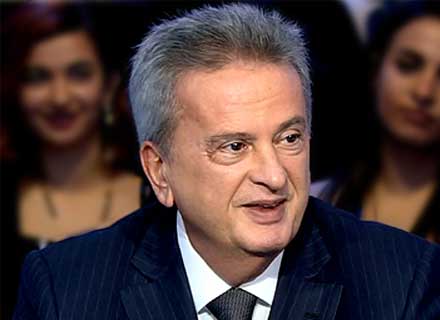Lebanon has frozen the bank accounts of former Central Bank Governor Riad Salameh and four of his associates, the Special Investigation Commission informed recently.
The middle-east country has also lifted banking secrecy on the accounts of all five individuals, which include Riad Salameh, his brother Raja, his son Nady, his former assistant Marianne Hoayek and Anna Kosakova, with whom Riad has a daughter, the statement added further.
Riad Salameh served as central bank governor in Lebanon from 1993 until July 31, 2023. The senior official is now facing arrest warrants in France and Germany following investigations into whether he and his brother took USD 330 million in public funds from the Lebanese central bank while he was governor.
The brothers and Riad Salameh’s former assistant Marianne Hoayek have all been charged in Lebanon over embezzlement and other financial crimes.
The Salameh brothers have denied the charges. While Nady Salameh did not respond to Reuters, lawyers for Marianne Hoayek and Kosakova have chosen to remain silent to the media.
Riad Salameh, in messages to Reuters, denied the allegations made by the three sanctioning countries and said he would challenge them. Some of his assets had already been frozen in previous investigations, the former central bank governor added further.
In March 2022, the European Union’s criminal justice cooperation organization announced the freezing of some of Riad Salameh’s 120 million euros (USD 130 million) worth of Lebanese assets in France, Germany, Luxembourg, Monaco and Belgium, in a case in which Munich prosecutors found the banker as a suspect.
In July 2023, the French judiciary transferred seized assets belonging to Riad Salameh and his associates to the Lebanese state.
According to Lebanese law, the Special Investigation Commission is headed by the central bank governor. In the absence of an appointed successor for Riad Salameh, first vice governor Wassim Mansouri is heading the institution as acting governor.
Meanwhile, a long-delayed independent audit of United States-based firm Alvarez & Marsal found that the central bank lost tens of billions of dollars of commercial lenders’ assets on a sovereign debt support scheme. The report also said USD 111 million of Central Bank of Lebanon funds were diverted to Riad Salameh’ personal accounts.
The report, while encountering numerous obstacles and delays and facing resistance from Lebanon’s key policymakers, said that the financial engineering conducted by the central bank was “highly costly, with a total cost of 115 trillion Lebanese pounds (USD 7.7 billion) between 2015 and 2020.”
The report further found that the central bank had a foreign currency surplus of USD 7.2 billion at the end of 2015. However, by the 2020 end, it had become a deficit of USD 50.7 billion.
“The rapid deterioration of the financial situation was not reflected in the balance sheet and financial statements, as Banque du Liban’s use of unconventional accounting standards allowed it to exaggerate the value of its assets and profits. A major chunk of losses was kept off the balance sheet and instead recorded under different categories,” the report continued further.
“The positions and losses of Banque du Liban are presented through the netting of assets and liabilities and through recording them in unexplained and general accounts such as ‘other assets’ and ‘clearance and settlement accounts,” it said.
“No loss is shown at all in the balance sheet,” it added, while noting that no information was provided to the public, such as the ones related to the profit and loss accounts from 2015 to 2020, interest paid to major depositors or granted to major borrowers, or the methodology for reporting those interests.

